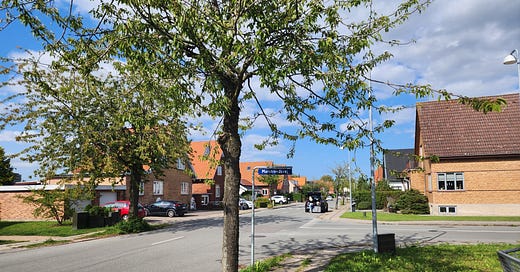In the fight against ecological decline, our most valuable resources are and will be space and time. We need space for healthy ecosystems - space for plants to capture carbon, to store it in the ground - and climate-positive food production. The greater the space for wilderness areas, the greater the potential for healthy wildlife populations to thrive. The less real green space there is, the more lawns and concrete cover the earth, the lower the capacity for the planet to support life. Humans need a limited amount of food and it's crucial to avoid wasteful over-production and allow that space for other species to thrive.
Every decision has an impact. No activity is neutral. Reductive language can be used to exaggerate the 'greenness' of anything, introducing myths into the ways we talk about climate solutions. We can either actively address ecological decline by building the social and physical infrastructure needed to reduce our collective impact, or leave the problem solving to self-serving governments and industries more interested in money than life. These industry-driven governments have spent decades downplaying and lying about the dangers of climate change. To reduce our impacts we need to achieve some level of local self-sufficiency rather than spending the rare free time we have fussing over lawns and the state of the paving.
The capacity for some self-sufficiency in terms of food production is high. I'm currently in a suburb of Odense, Denmark's third-largest city. My view from the window is dominated by manicured lawns and an 8-metre wide asphalt street. Most of the gardens in this neighbourhood are around 650 m2 in size. It's possible to grow 2,600 kg of food in a space of this size per season, which can feed up to six people in a year, achieving a fairly high level of self-sufficiency.
Of course this assumes that people have some gardening knowledge, the capacity and time to grow food, and some money available for seeds, plants, and fertiliser. Better to start now, when there is still room for trial and error, than when supply chains start to collapse and food gets unaffordably pricey. Think interwar Germany.
If every one of the gardens on this street turned into vegetable gardens, some 160,000 kg of food could be produced and 40,000 m2 wildlife space liberated, a space about half the size of Buckingham Palace. If the streets (not including sidewalks) were ripped up and also turned into active garden space, another 28,000 kg of food could be produced, enough for over 400 people for the year. Dedicating even a small portion of these spaces to food production would reduce plastic pollution, energy consumption, and greenhouse gas emissions.
Let's consider the concept of a victory garden and its use in addressing climate change. I often wonder why governments haven't pushed the idea in recent years, as the impacts of climate destruction become ever more apparent. It comes down to industry influence, as usual: if food isn't wrapped in plastic, plastic food wrap companies are out of business; the same for gas not being burned, pesticides, synthetic fertilisers, industrial agriculture in general (most of these can be linked back to the oil industry). It would put supermarket conglomerates at risk. Workers would lose the income they need to stay dependent on the current system. Our current system protects corporations despite the nightmare future we are barreling toward.
This abundance of under-utilised space in the suburbs is directly tied to our present dependence on food systems that require us to use wage-work in order to feed ourselves and our families. Without the time to produce our own food, we have to work more and more to afford ever more expensive store-bought food. This is directly tied to the postwar idea that we are in present future, a time where we are separate from our dirty agrarian past. We're stuck in a system of commercial dependency and Home Owners Associations don't help. The movement toward sustainability can start with ripping out lawns and replacing them with gardens, and local governments better let it happen.
I wrote this together with Alexandra Daum after many almost daily conversations. We want to counter this idea that certain industries play an important role in mitigating ecological decline, like lithium mines, electric cars, and nuclear power.





